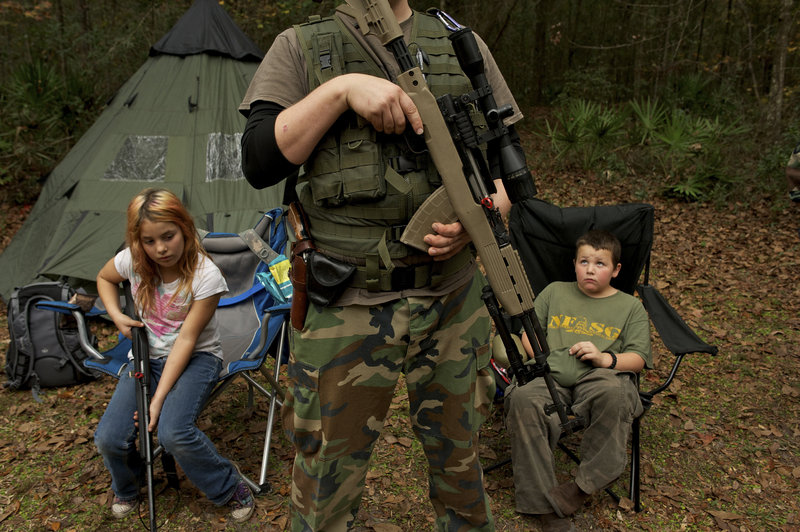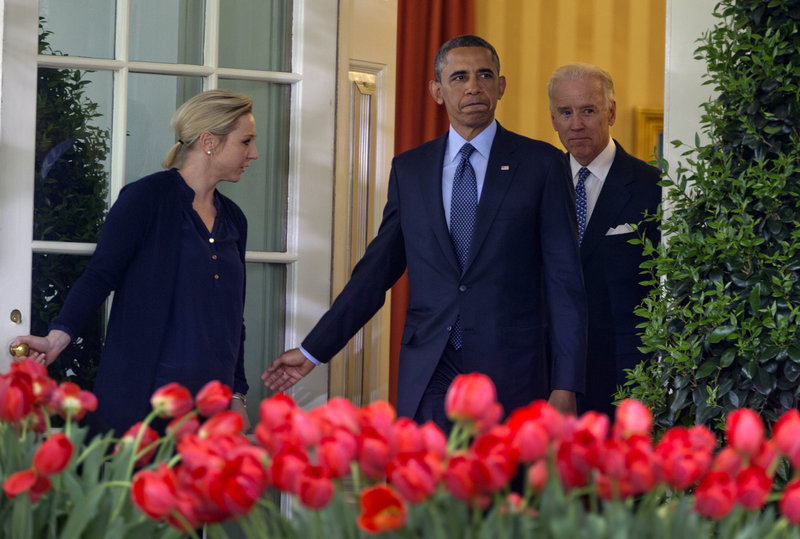If there were ever a moment that symbolized the difference between the power of public opinion and the strength of a concerted minority, it came Wednesday when the Senate defeated a bipartisan measure to expand background checks on gun purchases.
By the time the vote took place, the outcome was expected. But the result was stunning nonetheless, as was made clear by the angry reaction of President Obama, who had invested so much political capital on getting gun legislation passed after the shootings in Newtown, Conn., only to see those efforts crushed on the legislation’s first real test.
Obama’s description — “a pretty shameful day for Washington” — captured the moment and summed up the frustrations that many ordinary Americans long have expressed about Washington, which is that the system appears tilted in favor of blocking action on important, if controversial, issues rather than enacting legislation to deal with them.
The proposal to expand background checks to sales at gun shows and online was co-sponsored by Sens. Joe Manchin III, D-W.Va., and Patrick Toomey, R-Pa., two pro-gun rights lawmakers. It had the support of more than a majority of senators — 54 ayes to 46 nays — and it had the firm backing of the White House.
More significant, perhaps, in a polarized country is that the idea of expanded background checks received overwhelming support across the political spectrum. Nine in 10 Democrats, more than eight in 10 Republicans and independents, and almost nine in 10 Americans who live in households with guns backed the proposal, according to the latest Washington Post-ABC News poll. Nearly all of them said they “strongly” favored the plan.
In the ways of Washington, that still wasn’t enough.
“If you ever wanted a textbook example of intensity trumping preference, this is it,” said Ross Baker, a political science professor at Rutgers University. “You could have 100 percent of those polled saying they wanted universal background checks and it would still be defeated. You can’t translate poll results into public policy.”
Before the vote, the White House website displayed the message: “Now is the time to do something about gun violence. Let’s make our call so loud it’s impossible to ignore.” But those voices could not overcome the power of the National Rifle Association, the rest of the gun lobby or the procedural obstacles that are common in the Senate.
The NRA mounted a campaign to block the Manchin-Toomey compromise, and other more stringent measures pushed by the president and Vice President Joe Biden, such as a ban on military-style assault rifles and limits on high-capacity ammunition magazines.
The demise of the Manchin-Toomey proposal — the most significant restriction on gun purchases that had any chance of passing — represented a resounding defeat for the president, who had seized on the issue after the massacre in Newtown in December.
It was a defeat as well for the victims’ relatives, men and women who have walked the halls of Congress and spoken out passionately for action. It was a defeat for former congresswoman Gabrielle Giffords, D-Ariz., who was nearly killed in a shooting in 2011 and who joined in the lobbying effort. They were at the White House with Obama and Biden after the vote, a tableau of hopes crushed.
Wednesday’s vote was also another setback for efforts to find bipartisan accord on difficult issues that have resisted resolution. “The Manchin-Toomey compromise has gone the way of the bipartisan budget commission, the Gang of 6’s deficit reduction plan and the [budget] Supercommittee,” Sean Theriault, an associate professor of political science at the University of Texas at Austin, said in an e-mail.
Theriault, author of the recent book “The Gingrich Senators: The Roots of Partisan Warfare in Congress,” added: “While it provided glimmers of hope that a bipartisan compromise could be forged in the Senate, in the end, it serves as a reinforcement for how dysfunctional Congress has become.”
Few lawmakers were fully happy with the proposal that Manchin and Toomey put together. Liberals thought it didn’t go far enough. They embraced it, but there were enough grumbles about it that Sen. Charles Schumer, D-N.Y., who has been a leader in the effort to enact new legislation, begged them not to let the perfect be the enemy of the good. In the end, only four Democrats — all from red states — opposed it. Senate Majority Leader Harry Reid, D-Nev., voted no for purely procedural reasons.
What sank the amendment, however, was the near-unanimous opposition of Republicans, who argued that the proposed restrictions would infringe on Second Amendment rights.
Only four Republicans, including Sen. John McCain of Arizona, backed the proposal.
There seemed no better opportunity in recent years for Congress to pass new gun control measures, given the public outcry after the Newtown shootings, which killed 20 children and six adults. Obama moved quickly, knowing that with each passing day the prospects for congressional action would diminish. He spoke out frequently and tried to rally not just public opinion but public pressure.
Reid, a longtime supporter of the NRA, brought a bill to the floor shorn of the assault weapons ban and limits on high-capacity magazines, believing that would offer the best opportunity for passage of background checks. Manchin and Toomey worked for weeks to develop a compromise that would diminish the opposition from the NRA and draw more Republicans to its side.
“In many ways, everything was in place,” Baker noted. “Public opinion. Two centrist senators. A full-court press by the president. Astute parliamentary measures by Sen. Reid.”
Still, it did not happen.
The Post-ABC News poll found that 60 percent of people in gun-owning households said they could support a politician with whom they disagreed on gun control if they agreed with that person on other issues. That was almost the identical percentage as people who live in households without a firearm.
But members of Congress are mindful of who votes and who doesn’t on hot-button issues and they have seen the NRA’s power in past elections. That and the 60-vote threshold were enough to frustrate the desires of the majority for action.
Send questions/comments to the editors.




Success. Please wait for the page to reload. If the page does not reload within 5 seconds, please refresh the page.
Enter your email and password to access comments.
Hi, to comment on stories you must . This profile is in addition to your subscription and website login.
Already have a commenting profile? .
Invalid username/password.
Please check your email to confirm and complete your registration.
Only subscribers are eligible to post comments. Please subscribe or login first for digital access. Here’s why.
Use the form below to reset your password. When you've submitted your account email, we will send an email with a reset code.